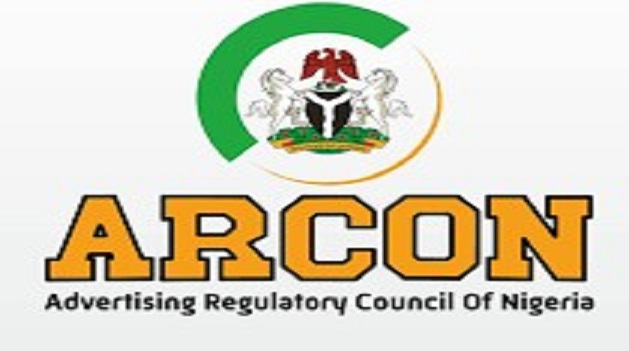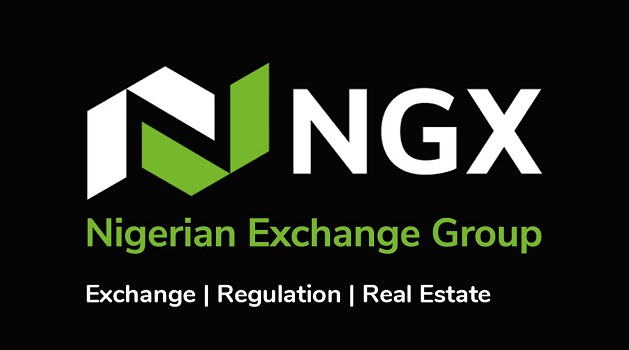News
ARCON to Regulate Computer-Imagery in Advertising

The Nigerian Advertising Regulatory Council (ARCON) plans to regulate the use of computer-generated imagery in advertising.

Dr Olalekan Fadolapo, director general of the ARCON, disclosed this at a recent Advertising Standard Panel Stakeholders’ Forum in Lagos.
He noted that the move was aimed at promoting local content, maintaining industry integrity, and driving economic development.
According to Fadolapo, the forum discussed ethical standards and compliance with advertising laws within the industry.
He said, “The regulatory body has declared the prohibition of such materials surrounding the proliferation of computer-generated imagery in advertising. It has stressed the need for advertising agencies to provide verifiable information of Nigerian models featured in campaigns.”
He added that the intention was to ensure the protection of local talents and preserve Nigeria’s national interests.
Fadolapo emphasised the importance of stakeholders in the advertising sector acquainting themselves with the Nigerian Code of Advertising.
“This familiarity is crucial to understanding regulatory obligations, ensuring compliance, and following guidelines before submitting their materials for review,” he expounded.
He emphasised the importance of self-regulation and adherence to copyright laws within the advertising industry to foster ARCON’s commitment to creating an enabling environment for promoting ethical advertising standard practices.
He vowed that ARCON would continue to curb advertising violations and enforce regulatory measures on all digital platforms.
In her keynote address, the Chairman of the Advertising Standard Panel, Mrs Omowunmi Owodunni, stated that lack of ethics had made practitioners and stakeholders not comply with the ambits of the law.
“For our advertising industry to meet international standards, practitioners must be decent and legal in our approach,” she maintained.
Owodunni cautioned against the unauthorised proliferation of digital advertisements, emphasising that the regulatory body would take strict action against individuals and organisations engaged in such illegal activities.
“During the vetting process, third-party and independent assessments with verifiable information are necessary to support advertising claims,” she noted.
Owodunni further clarified that although the advertising code undergoes periodic reviews, creative content must adhere to legal standards, be substantiated, and be sensitive to laws.
On her part, the Director of Regulations, ARCON, Mrs Martha Onyebuchi, lamented that a lot of advert materials were full of misinformation that could not be substantiated.
She noted that practitioners would be penalised for such unethical behaviour. According to Onyebuchi, stakeholders should uphold the law and not breach it.
“ARCON is not regulating to strangle the advertising industry but to promote creativity and support local content,” Onyebuchi added.
News
NGX Group Chairman Seeks Regional Collaboration to Unlock West Africa’s Trade, Investment Potential

Umaru Kwairanga, chairman, Nigerian Exchange Group (NGX Group), has called for stronger regional cooperation to harness the untapped potential of West Africa’s trade and commodity markets.

Speaking at the inaugural West Africa Economic Summit (WAES) 2025 held under the theme “Unlocking Trade and Investment Opportunities in the Region”, Kwairanga highlighted the critical role of capital markets and commodity exchanges in transforming the region’s abundant natural resources into organised, transparent capital that fuels industrialisation and inclusive economic growth.
The summit brought together key stakeholders from across West Africa to deliberate on strategies for accelerating regional integration, strengthening capital markets, and unlocking the full potential of intra-African trade.
In his remarks during a high-level panel on “Commodities as Capital: Regional Commodities Exchange & Reserves”, Kwairanga noted that despite West Africa’s wealth of raw materials, the region continues to face a paradox of resource abundance coexisting with capital scarcity.
“As a nation and region, we are abundantly rich in raw materials, but often poor in capital outcomes. This paradox is not due to a lack of resources, but due to the way these resources have historically been excluded from structured financial ecosystems.
Commodities, whether agricultural, mineral, or energy, must be seen not just as tradeable goods, but as investable assets capable of powering industrialisation, job creation, and macroeconomic stability,” he said.
Kwairanga emphasised NGX Group’s commitment to building resilient market infrastructure that supports price discovery, clearing, settlement, and investor protection, systems that can underpin thriving regional commodity markets.
He highlighted NGX Group’s role in mobilising capital for commodity value chains through IPOs, bonds, and structured funds, citing the success of NGX-listed companies like Presco and Okomu Oil as models for attracting long-term investment.
On the question of regional versus national commodity exchanges, Dr. Kwairanga advocated for a dual approach that combines the strengths of national platforms with the scale and integration benefits of regional frameworks.
“National exchanges address local needs and build depth, but for West Africa to unlock the full potential of commodity trade, we must connect these markets under a regional structure.
“Regulatory harmonisation will be key, and this is where NGX Group’s experience in governance, coupled with platforms like the African Exchanges Linkage Project and the Pan-African Payment and Settlement System, can help align standards and enable seamless cross-border transactions,” he stated.
Addressing liquidity challenges, Kwairanga outlined the need for harmonised rules, trustworthy infrastructure, product innovation, and incentives to drive participation. He called for public-private partnerships and regional integration to deepen market liquidity and ensure efficient price discovery.
Beyond the panel discussions, Kwairanga commended the vision of President Bola Tinubu and the Minister of Foreign Affairs, Ambassador Yusuf Maitama Tuggar, for spearheading the summit. “There is power in unity and prestige in size. The great economic powerhouses of the 21st century, such as the United States and China, have risen to prominence partly because of the scale of their markets.
A united West Africa can achieve the same if we work together on initiatives like this,” he said, expressing optimism that the summit would produce actionable frameworks to reduce trade barriers, encourage regional investment, and fast-track economic growth across ECOWAS.
NGX Group, he added, remains committed to supporting cross-border investments, citing its participation in the African Exchanges Linkage Project and the increasing regional footprint of NGX-listed companies such as Dangote Cement, First Bank, Zenith Bank, Access Bank, and Ecobank.
News
DBN Awards N13m in Grants to Tech Startups

Development Bank of Nigeria (DBN) has awarded a total of N13 million in grants to three standout tech startups at the 2025 Techpreneur Summit held in Lagos, reinforcing its commitment to innovation and inclusive growth among Nigeria’s micro, small, and medium enterprises (MSMEs).

The winners include: BuyScrap, a digital marketplace for recyclable materials – N6 million; Qiqi Farms, which connects local farmers to hospitality and export markets – N4 million; Eco-Cyclers, a youth-led recycling initiative based in Enugu – N3 million
Alongside the grant awards, DBN also launched a new digital data asset, a first-of-its-kind platform aimed at enabling data-driven decisions within the MSME ecosystem.
The platform offers deep insights into business trends, sector-specific challenges, and growth opportunities—supporting smarter policymaking and targeted investments.
In his keynote address in Lagos, Tony Okpanachi, managing director/ CEO, DBN, described the event’s theme, “CTRL + SHIFT: Tech Empowered Movement for Naija,” as a strategic call to reimagine enterprise development in Nigeria.
“This isn’t just a keyboard shortcut,” he said. “It’s a mindset reset—powered by technology—to build a more inclusive, innovative, and resilient business landscape. From financing to innovation, DBN remains committed to enabling MSMEs to thrive.”
Okpanachi emphasized that the Summit aligns with DBN’s AMPLIFI Strategy, which integrates digital transformation, sustainability, and scalability into its core programs.
He highlighted initiatives such as the Digital Shift Workshops and the Eco-Innovation Challenge as key steps toward embedding innovation in Nigeria’s MSME sector.
Encouraging young innovators, he added: “The future belongs to those bold enough to imagine and build it. DBN is proud to support the ideas that will shape tomorrow.”
A major highlight was the unveiling of the DBN Data Asset—a digital platform designed to provide real-time, evidence-based insights into Nigeria’s MSME landscape.
The platform combines DBN’s proprietary data with external sources like the National Bureau of Statistics (NBS) to offer a comprehensive view of MSME performance by region and sector.
Jeremy Dan Okayi, DBN’s Head of Strategy, Policy & Innovation, described the platform as: “A reservoir of insight, potential, and direction—built on two years of collaboration and shared vision. This tool will support informed decision-making across the public and private sectors.”
News
FCCPC Shuts France, Belgium, and Italy Visa Centres in Abuja Over Alleged Consumer Rights Violations

In a bold enforcement action, the Federal Competition and Consumer Protection Commission (FCCPC), supported by the Nigeria Police Force and the Nigeria Security and Civil Defence Corps (NSCDC), has sealed off the visa application centres of France, Belgium, and Italy in Abuja over alleged consumer protection breaches and obstruction of regulatory investigations.

The affected centres—located at Mukhtar El-Yakub House in the Central Business District and operated by TLS Contact, a Teleperformance Company—were shut down following reports that they refused to accept formal correspondence from the FCCPC regarding a consumer complaint. The Commission cited further infractions, including obstruction of investigation and alleged assault of its officers during lawful duties.
Speaking to journalists at the scene, Mrs. Boladale Adeyinka, Director of Surveillance and Investigations at the FCCPC, explained: “This is an enforcement operation against TLS. On March 25, 2025, we served them a letter to address a consumer complaint, which they refused to accept. Instead, TLS officers assaulted our team, and in a subsequent visit on June 17, they also allegedly assaulted uniformed police officers.”
Citing Section 33 of the Federal Competition and Consumer Protection Act (FCCPA), Mrs. Adeyinka emphasized that failure to comply with Commission directives constitutes a criminal offense, punishable by imprisonment, fines of up to ₦20 million, or both.
TLS has been ordered to appear before the Commission on June 20, 2025, to provide testimony, submit evidence, and make formal depositions. The company may be held liable for any financial losses suffered by applicants due to the disruption of visa services.
Despite multiple requests for comment, management at TLS Contact declined to respond as of press time.

 Telecom1 day ago
Telecom1 day agoMTN Says New N6.98 USSD Charge Won’t Affect Airtime Recharge

 General News1 day ago
General News1 day agoStudy Reveals 7% of Industrial Organizations Tackle Vulnerabilities Only When Necessary

 General News1 day ago
General News1 day agoNITDA, NCFRMI Forge Strategic Alliance for Inclusive Digital Transformation of Displaced Nigerians

 E-Financial1 day ago
E-Financial1 day agoSofri Rejigs Digital Platforms for Better Customer Experience

 Telecom1 day ago
Telecom1 day agoNnaemeka Ani Calls on African Techies to Rewrite the Narrative

 Telecom1 day ago
Telecom1 day agoCrypto Scam Unmasked: U.S. Recovers Record $225m in Global Fraud Bust

 E-Financial1 day ago
E-Financial1 day agoDLM Group Unveils Innovative Sovereign Bond Backed Composite Notes

 E-Financial1 day ago
E-Financial1 day agoFidelity MD,Onyeali-Ikpe Champions Lifelong Learning and Sisterhood for Women’s Career Growth















